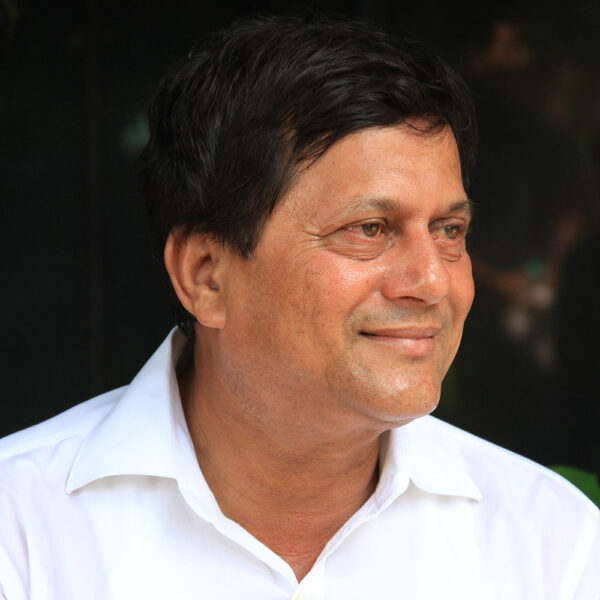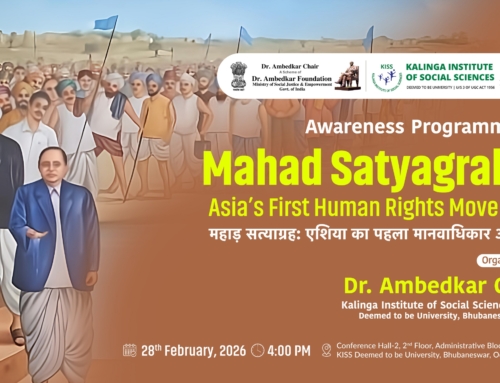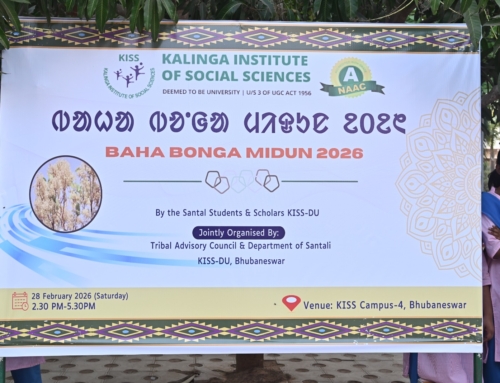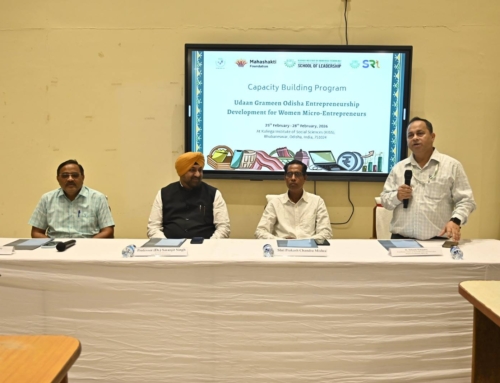The Geography Programme, School of Tribal Resource Management, in collaboration with the Centre for Indigenous Innovation and Entrepreneurship, KISS-DU, observed World Environment Day on 5th June 2024 with a series of activities that highlighted the importance of environmental sustainability and the critical role of Sustainable Development Goals in achieving a greener future. The event, which brought together students, research scholars and faculties, was themed around this year’s global focus: “Our Land, Our Future. We are #GenerationRestoration,” emphasizes the importance of restoring land, combating desertification, and enhancing resilience to drought.
The celebration began with a tree-planting ceremony on campus, which students and faculty enthusiastically participated in. This ceremony underscored the importance of reforestation in combating climate change and preserving biodiversity. A student then talked about the intersection of environmental protection and the SDGs,, followed by the tree plantation drive.
In the opening remarks, Dr Arpana Premi Lina Oraon, Associate Professor of the Geography Programme, emphasized the role of education in fostering environmental awareness among the youth. The SDGs provide a comprehensive framework for addressing our planet’s multifaceted challenges. At KISS, we are committed to equipping our students with the knowledge and skills to be stewards of the environment. Today’s activities testify to our ongoing commitment to Goal 4, Quality Education and Goal 13, Climate Action.
Students from the School of Tribal Resource Management presented their presentation on ecosystem restoration, highlighting the significance of sustainable practices in agriculture, waste management, and water conservation. One of the students, Prem Sing Majhi, who is post-graduation, shared insights from his presentation on sustainable agricultural practices in tribal regions. Research shows that traditional farming methods and modern sustainable practices can significantly improve food security and promote environmental health, directly contributing to SDG 2, Zero Hunger and SDG 15, Life on Land.
Faculty members also shared their views on topics related to environmental sustainability. Dr Snigdharani Panda, Chairman of the Council of Deans, discussed climate change’s impact on Odisha’s coastal ecosystems and highlighted the urgent need for integrated coastal zone management to protect these fragile ecosystems. This aligns with SDG 14, Life below Water, and SDG 13, Climate Action, and calls for a collaborative effort at both the local and global levels.
The event concluded with all participants pledging to take actionable steps towards environmental sustainability, Mrs Saurava Goswami reinforcing their commitment to the SDGs, and Dr Monalisha Mishra from the Geography Programme, KISS-DU, giving the formal vote of thanks.








